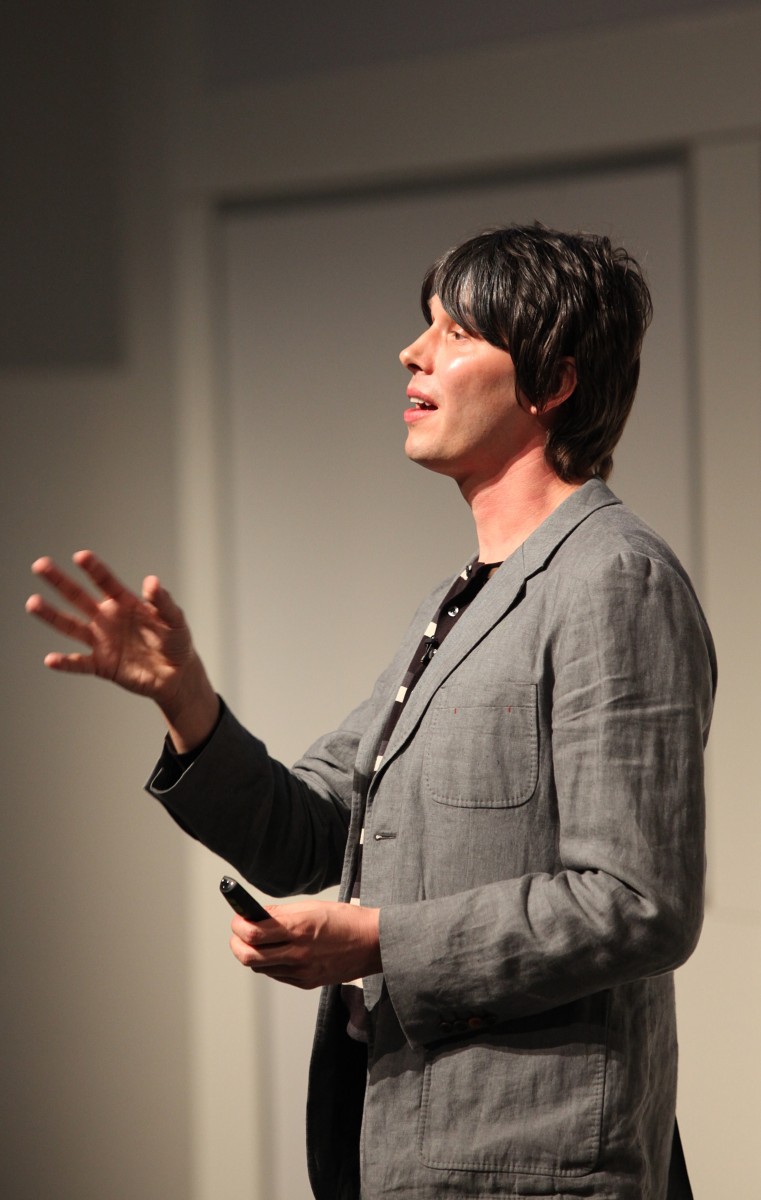The University of Manchester at ESOF: Monday 25 July

From flying cars to graphene and the environment and big data there’s plenty of University of Manchester knowledge for delegates to tap into at ESOF.
You can see below for all of our events at the conference on Monday and don’t forget that outside of the event there’s also our huge for delegates and non-delegates alike to get involved in.
- For more on The University of Manchester at ESOF, .
- See the full ESOF programme .
All week
The event provides a great opportunity for early-stage career researchers to pose questions and share ideas on the direction of their research, careers and future paths and to have general science discussions – all in an informal atmosphere with a leading professor in their field of interest.
Monday, 25 July
8:30 - 9:45 am
We will demonstrate what 3D imaging can achieve today, with scales ranging from metres to the atomic, and time lapse imaging ranging from weeks to milliseconds. We will also provide a window on what might be achievable tomorrow.
8:30 - 9:45 am
The deluge of data brought by experiments, whether in physics, biology or astronomy is pushing us to think of innovative ways to transport, process, distribute and store information. So what direct benefits will big data bring to society?
11:25 - 12:40 pm
Brian Cox FRS is Professor of Particle Physics at the University of Manchester and The Royal Society Professor for Public Engagement in Science. He is active in the public and political promotion of science, and is known to the public for his documentary work on BBC television. In this session Professor Cox sits down with Matthew Cobb, Professor of Zoology at The University of Manchester to talk about Life, the Universe and Everything.
12:50 - 2:05 pm
We will showcase selected revolutionary technologies and assess policy scenarios by considering scientific advice regarding a technology’s risks and its legislative implications. The session also aims to integrate live social interaction with participants via Twitter.
2:15 - 3:30 pm
Interested in starting a company? Come try it on for size first at this workshop, run by experts in spin-out companies who have devised a game to illustrate the challenges you may face in starting your own company.
2:15 - 3:30 pm
Medical innovation offers the allure of improvements in individual well-being, the potential for greater health care choices and the appeal of highly lucrative business opportunities. How do we ensure this innovation is developed responsibly, with due consideration for legal and ethical aspects?
2:15 - 3:30 pm
Humour is an important part of the culture of science. Often portrayed as humourless individuals or as geeks, scientists enjoy stepping back and laughing at themselves and their colleagues. We will provide an opportunity for scientists, science journalists, and others who work in and around the scientific world to talk about humour in science. Can a piece of scientific research be both important and humorous?
3:45 - 6:15 pm
Synthetic biology has the potential both to transform the industrial landscape across all sectors - including healthcare, sustainable energy, green chemistry, pharmaceuticals, novel materials and bioremediation - and to address major societal challenges. Visionaries of synthetic biology, together with ethicists and social scientists from the SYNENERGENE project will anticipate future applications for synthetic biology and reflect on their ethical and societal implications.
3:45 - 5:00 pm
Science increasingly permeates our lives through new modes of education and social media channels, while the rise of citizen science has become a powerful tool for collaboration. We will explore society's growing expectations to be informed of research, in line with its values for transparency, and also increasingly to have a say through social media and its desire to engage with research through citizen science.
3:45 - 5:00 pm
We will showcase the first results from a major survey examining changes in innovation management and practice across a diverse range of industry sectors in 11 EU member states. The panel of senior industrial managers and policymakers will discuss the implications of these findings around the four propositions.
5:10 - 6:25 pm
Public involvement in scientific research cuts across all subject areas, disciplines and stages of science; it is relevant to scientific practice, policy and governance; it can foster alternative and innovative approaches. We will debate what needs to happen next to continue to enable public involvement as a force for positive change in science.
5:10 - 6:25 pm
Over the past two decades, the language of public policy has shifted from top-down assertions of scientific authority towards engagement, dialogue and co-production between formally trained scientists and other communities. We will explore the value of arts, humanities and social science research in developing this understanding, highlighting the roles of history, creative writing, drama and electronic media approaches to dialogue, and participatory and DIY modes of “doing science”.